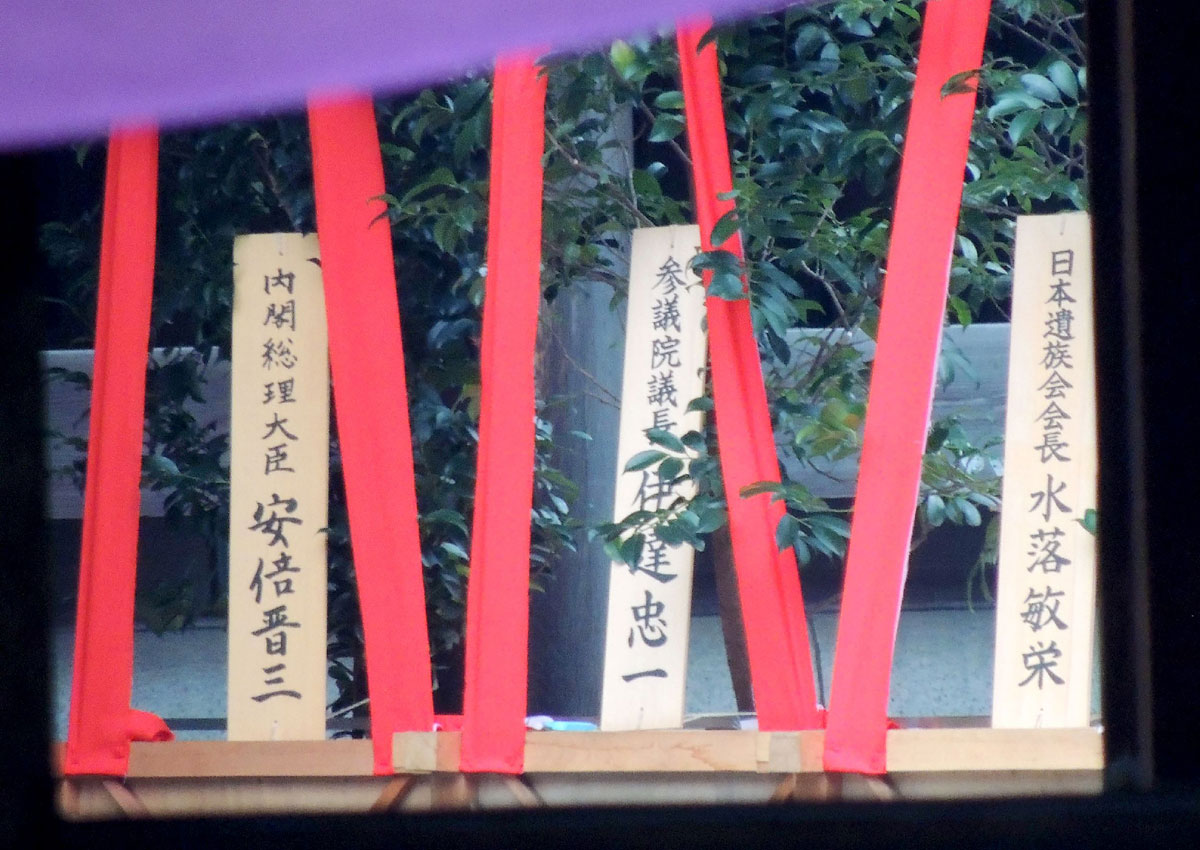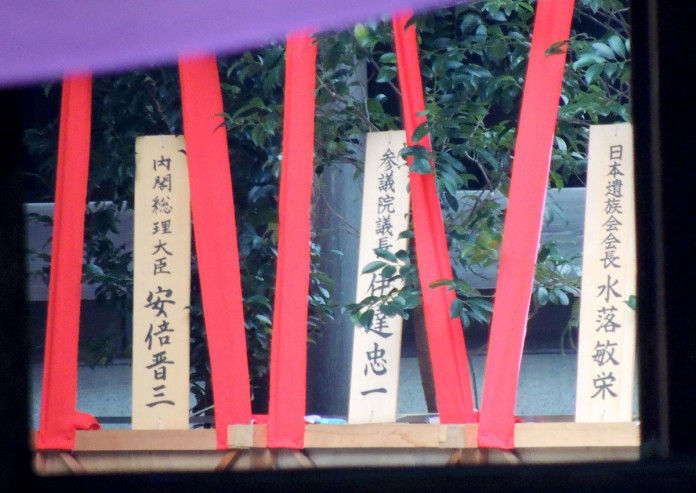Japan’s Prime Minister Shinzo Abe sent a ritual offering to a controversial war shrine on Monday but did not visit, possibly avoiding an angry reaction from China and South Korea.
The conservative premier – who has been criticised in the past for what some see as a revisionist take on Japan’s wartime record – sent a sacred “masakaki” tree bearing his name to Yasukuni Shrine at the start of a four-day festival.
The shrine honours millions of Japanese war dead, but also senior military and political figures convicted of war crimes after World War II.
The site has for decades been a flashpoint for criticism by countries that suffered from Japan’s colonialism and aggression in the first half of the 20th century, including China and the two Koreas.
More controversial than the shrine is an accompanying museum that paints Japan as a frustrated liberator of Asia, and a victim of the war.
Abe and other nationalists say Yasukuni is merely a place to remember fallen soldiers and compare it with Arlington National Cemetery in the United States.
Abe visited in December 2013 to mark his first year in power, a pilgrimage that sparked fury in Beijing and Seoul and earned a diplomatic rebuke from close ally the United States, which said it was “disappointed” by the action.
But he has since refrained from going, sending ritual offerings instead.
Scores of conservative lawmakers, possibly including cabinet ministers, are expected to go to the shrine to mark the autumn festival on Tuesday.






